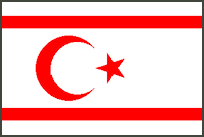Northern Cyprus - Economy
 The Turkish lira shed 44 percent of its value against the US dollar in 2021, driving up prices by a similar amount and exacerbating decades of economic isolation imposed on the north.
The Turkish lira shed 44 percent of its value against the US dollar in 2021, driving up prices by a similar amount and exacerbating decades of economic isolation imposed on the north.
Implementation of the EU acquis communautaire has been suspended in the area administered by Turkish Cypriots until political conditions permit the reunification of the island. In the four years between 2003 and 2006, the Turkish Cypriot economy recorded growth rates averaging around 13.4 percent per annum. This growth was fuelled by the relative stability of the Turkish Lira, a large construction boom, the expansion of Turkish Cypriot universities -- which cater mainly to Turkish and other international students -- and the employment of more than 4,000 Turkish Cypriots in the government-controlled area.
However, since 2007, the economy in the north ground to a halt and went into recession, with real growth rates of 1.5 percent in 2007 and minus 1.9 percent in 2008. Construction activity, which boomed in 2005 and 2006, came to a bust in 2007 and 2008, while tourism and agriculture went reverse. The Turkish Lira is the main currency, although Pounds Sterling and Euros are widely used.
Most businesses in the north are family-run and tend to be very small. Manufacturing is limited mainly to food and beverages, furniture and fixtures, construction materials, metal and non-metal products, textiles and clothing. Unemployment in 2009 was estimated at 9.8% and the total workforce was reported at 92,000 people. The minimum wage is currently USD 800 (1237 TL) per month. With hundreds of miles of coastline, medieval castles and antiquities, tourism is a major potential growth industry. Tertiary education is also one of the strongest sectors in the north. There are currently six universities attended primarily by students from Turkiye. According to the "State Planning Organization," over 40,000 students, of which over 80 percent are foreign, registered for the 2007-2008 academic year.
The absence of a political settlement and the lack of international recognition for the "TRNC" pose an inherent risk for the foreign investor interested in buying or leasing property in the area administered by Turkish Cypriots. The economy operates on a free-market basis, although it continues to be handicapped by the political isolation of Turkish Cypriots, the lack of private and public investment, high freight costs, and shortages of skilled labor. Despite these constraints, the Turkish Cypriot economy turned in an impressive performance from 2003 to 2006, with estimated growth rates of 13.2% in 2006, 13.5% in 2005, 15.4% in 2004, and 11.4% in 2003. This growth was fueled largely by a construction boom, which ended abruptly amid renewed controversy over the legitimacy of property titles in the north, following a much-publicized court case in which the United Kingdom Court of Appeal on January 19, 2010 affirmed an earlier ruling by the European Court of Justice.
Turkiye remains, by far, the main trading partner of the area administered by Turkish Cypriots, supplying 68% of imports and absorbing around 58% of exports (2007 figures). In another landmark case, the European Court of Justice ruled in 1994 against the British practice of importing produce from the area based on certificates of origin and phytosanitary certificates granted by "TRNC" authorities. This decision resulted in a considerable decrease of Turkish Cypriot exports to the EU--from $36.4 million (or 66.7% of total Turkish Cypriot exports) in 1993 to $12.9 million in 2006 (or 19% of total exports).
In August 2004, new EU rules allowed goods produced or substantially transformed in the area administered by Turkish Cypriots to be sold duty-free to consumers in the government-controlled area and through that area to the rest of the EU. To qualify, goods must also meet EU sanitary/phytosanitary requirements. Animal products are excluded from this arrangement. In 2005, Turkish Cypriot authorities adopted a new regulation "mirroring" the EU rules and allowing certain goods produced in the government-controlled areas to be sold in the area administered by Turkish Cypriots. (However, suppliers cannot legally transport imported products over the green line in either direction.) Despite these efforts, direct trade between the two communities remains limited (comprising only 0.09% of the Greek Cypriot community's trade, and 11.8% of the Turkish Cypriot community's trade in February 2009).
A two-tiered banking system exists within the Turkish Cypriot administered area of Cyprus, including a group of offshore banks that can effectively opt out of many rules and regulations governing their operating conditions, including anti-money laundering and combating the financing of terrorism (AML/CFT) requirements. While the Turkish Cypriot "Central Bank" is not an internationally recognized banking supervisor, it does impose some level of regulatory scrutiny on its onshore banks. The offshore banks, however, are almost entirely exempt from supervision. In addition to deficiencies present in the banking sector, casinos operating in the Turkish Cypriot administered area have been noted as being conduits for money laundering.
|
NEWSLETTER
|
| Join the GlobalSecurity.org mailing list |
|
|
|

